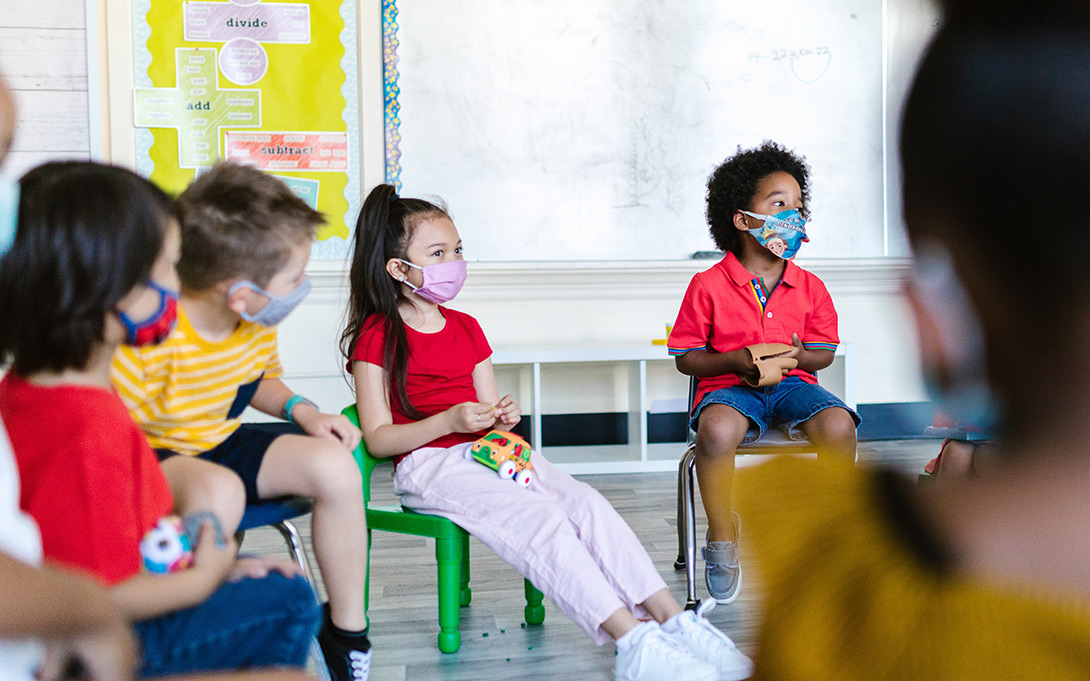
After all of the disruption in Michigan schools since the COVID-19 pandemic began – establishing remote learning curricula and the technical infrastructure needed to maintain it, lack of socialization among students, conflicts between school boards, local government and parents – what will be the longer-term effects on educational systems? Several education researchers in Michigan recently identified some of the trends and concerns, and outlined what they believe will be the changes in education that will outlast the pandemic.
Kevin Stange, associate professor of public policy faculty co-director of the Education Policy Initiative, says financial inequities and the associated lack of technology access has become clearer, as families have struggled with computers, software and connectivity. He says education agencies have addressed some of those challenges, by taking steps to increase community internet access, stand up new 1-to-1 device programs, and reassess the dependence on standardized testing. For example, many colleges waived the SAT and/or ACT admission requirement. “I think there's a greater emphasis on making college more affordable and facilitating access to aid,” as a result of the pandemic, he says. ”I think an appreciation for the challenges [students and families face], and changes in policy to accommodate them, is one area I hope is not going away.” Some of the other moves to improve educational access taken during the pandemic should remain as well.
“COVID has created a real interest in digging underneath the hood about what's going on with students and their families, and has forced this deeper relationship between the home and the school that was always there, but I think often education policy researchers and policy makers try to pretend that it doesn't exist,” according to Sarah Lenhoff, associate professor of Educational Leadership and Policy Studies at Wayne State University. She is also director of the Education Research Partnership, a collaboration with Detroit schools and community-based organizations to produce research to inform education policy and practice in Detroit. “Children learn throughout their entire experience at home, at school, and outside. It's a positive thing to take away from this moment, and an opportunity for schools to be innovative about how they support families across their lives and just help students succeed,” she says.
Katharine Strunk, the chair of Education at Michigan State University and faculty director of the Education Policy Innovation Collaborative, also believes that discovery or deepening of the relationships between parents and schools has been a positive result of the pandemic, “realizing the importance of school, not just for academic learning, but for the general health of the child and of the community.” Yet she worries about what the extended school staffing shortages say about exactly how taxing the pandemic has been on it's most valuable resource - teachers. If education systems are to effectively recover from the tolls of the pandemic - we need to focus on finding ways to ensure that education remains a rewarding place to be at the end of the pandemic - for teachers, staff, and students." She also says the new willingness to engage remotely still needs to take into consideration those students who don’t learn as well virtually. “We need to think a lot about it if we're going to really continue to rely on remote instruction as a regular part of our school year,” she says.
Delsa Chapman, deputy superintendent of educator, student and school support at the Michigan Department of Education, is an important policymaker for the state of Michigan. During the panel discussion, she shared that classroom innovation has accelerated and will continue to evolve as a result of the pandemic. Alleviating the teacher shortage will continue to be a priority. She also noted that, “Many are still asking, when will we get back to being normal? I say, ‘This is our new normal and we must have grace in it and all work together and move forward.’”
The full discussion can be seen here: Navigating the impacts of COVID-19 on education in Michigan
